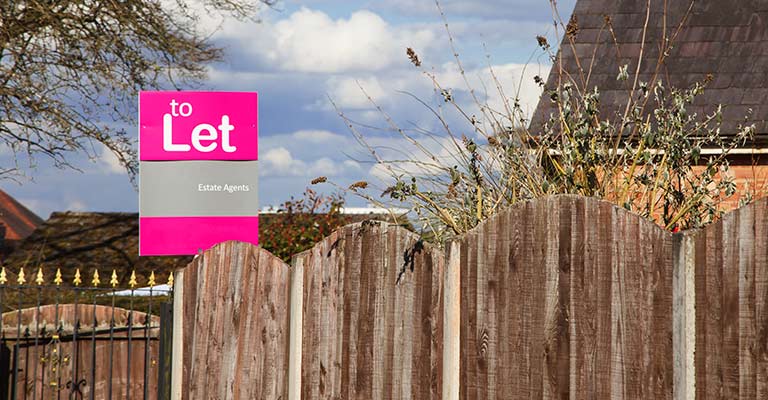This ultimate guide has been created to provide simple, jargon-free answers to popular questions about remortgaging and how you could save money by undertaking a remortgage. We’ll jump straight into the meaning of a remortgage and the different scenarios which you may be in that may require you to change your mortgage.
Remortgaging Guide Contents
If you’re looking for the answer to a particular question, click on the links below to skip straight to the answer:
What is a Remortgage?
When should I remortgage my property?
Where can I find the best remortgage rates?
Can I remortgage with the same lender?
How do I remortgage and how long does it take?
I own my home outright, can I remortgage?
Can I remortgage to release equity?
I’m looking to buy another property, how does remortgaging work?
Can I remortgage with the Help to Buy Scheme?
How can I get the best rates on a buy to let remortgage?
If you’ve got any further questions about remortgaging or mortgages in general, please contact us.
What is a Remortgage?
A remortgage by definition means to pay off one mortgage by using another lender. Remortgaging is often an option which borrowers consider when they have access to a different deal, usually with better rates. It’s very common if you have a mortgage to switch to a different deal either with your existing lender or a new lender.
A mortgage can last for 30+ years depending on your deal. Remortgaging use to be less common with borrowers staying with their initial lender, however with the constantly changing economy, changing mortgages has become commonplace.
If you’re unfamiliar with remortgages, it’s always best to seek professional advice. If you’re interested in finding out if you could save money on your mortgage, try our remortgage calculator. A the end of the remortgage calculator, you can choose to receive a quick, free telephone consultation with one of our recommended brokers who are able to provide advice.
When should I remortgage my property?
The most common time to remortgage your property will be at the end of a fixed term deal. Lenders usually offer a deal where the rate of the mortgage interest is fixed. This could be a variable rate or a fixed rate for 1 to 10 years. After this period, lenders will automatically switch you to their standard rate. These rates are almost always much higher than the current market rate and it is always good practise to search for the best remortgage deals.
There are other times when it may be a good idea to remortgage:
- If your property has increased significantly in value
- If you need to borrow additional funds
If you’re in the fortunate position where the value of your property has significantly increased since you purchased it, your loan to value (LTV) ratio will have reduced. This means that you may be able to get preferential rates and better deals with the lender. The best way to find out if you can benefit from a remortgage is to speak to a mortgage broker.
Remortgaging is a possible method of obtaining extra money. It’s quite plausible that your current lender won’t offer you extra funds or the rates which they’re offering aren’t great. The alternative would be to speak to a new lender who may be able to offer you a better rate. It’s important to consider that if you are switching your mortgage, there are often fees associated with this. There may be early re-payment fees from your current lender and fees to setup the new mortgage. Therefore make sure that you are aware of the total cost of moving – not just the advertised interest rates.
If you choose to take this route, the new lender will enquire about the reason for borrowing the money. Usually, home improvements, purchase of a car or an asset will be preferable over a new business venture.
Where can I find the best remortgage rates?
Taking out a mortgage is one of the most expensive financial decisions which most people make in their lifetime. It shouldn’t be down to guesswork and a quick Google to find the best rates. Whilst lenders have to abide by strict regulations from the FCA (Financial Conduct Authority), they are under no obligation to provide you with the best deal on your remortgage.
Remortgaging can be very time consuming and each lender will have different criteria which determine the deals which you can access. Some lenders can be incredibly slow with processing paperwork and may have a large number of hurdles which you need to jump through just to find out if they’ll even lend to you! The best route for most will be to get a rough idea of the best rates by using a remortgage calculator and then speaking to a mortgage broker who has extensive experience with each different lender.
By using our remortgage calculator, we can quickly work with you to collect the basic information and then pass this to our select experts who will be able to advise on the different options. They often have access to deals which aren’t directly available to the general public.
Can I remortgage with the same lender?
In most cases, yes. However the lender will often rely on speed and ease of switching deal by remaining with them which means that you’ll often not be on the best rate. By using a mortgage broker, you’ll save hours of time and frustration and they’ll be able to get the deal most suited to your circumstances. There’s no harm in checking with your current provider to see what their best rate is. You can then use this as a benchmark to try and find a better rate. After all, even a slightly lower fee and interest rate will likely save a lot of money over the years.
One of the benefits of staying with your existing lender is that there are usually no legal fees as you don’t usually need a solicitor to remortgage. There are no further credit checks and in most cases you won’t need to carry out an affordability assessment. This will come with a cost and by staying with your current lender, you’re limiting yourself to a small selection of deals which they have available.
If you’ve got a good credit history, it’s definitely worth comparing the other lenders rates to potentially save thousands. You can do this with our online tool here.
There is often less flexibility by remaining with your current lender. When you become a new customer with a different lender, you may receive added benefits such as making overpayments.
How do I remortgage and how long does it take?
How long it takes to remortgage your property depends on which route you choose to take. If you decide to search for a new lender yourself, it will take many hours scouring the internet and contacting lenders. Usually the first move if you’re looking to remortgage would be to contact your existing lender to discover which deals they currently have available to you. Although this can be tempting, you can’t be sure that you’ve got the best deal and lenders are fully aware that simply switching your deal with them is the quickest option.
Most borrowers are unaware that you can actually secure a new deal up to 6 months before your current rate ends. This can be particularly useful in times of uncertainty in the property market or if you’d like peace of mind. At Mortgage Arrangers we offer a free initial consultation with one of our independent, regulated mortgage brokers across the UK who will be able to do the hard work for you and check hundreds of different lenders to make sure you’ve got the best deal.
I own my house outright, can I remortgage?
Full ownership of your home is a great position to be in. When you’ve paid off your original mortgage and own your house outright, you’re an ideal borrower for a mortgage lender. Applying to remortgage your property is very straightforward and you’ll usually benefit from the best deals as it’s considered lower risk.
Remortgaging can either mean to pay off an existing loan or to apply for a new loan on a property which previously had a loan. There are usually lots of different reasons as to why you may want to remortgage a home which you own outright. It could be to release funds (equity) from the value or the property for a buy to let mortgage, for home improvements or even to pay for a holiday!
Applying directly to different lenders can become extremely time consuming and complex – there are various factors in play when choosing a lender and although a particular lender may look great on paper, if you need the funds quickly they may not be the best choice for your situation.
It’s always best to speak with a mortgage broker who will be able to give you professional advice. We have a network of quality local brokers across the UK who will be able to compare the different products and help you secure the best deal. Why don’t you make a start today? Simply complete our remortgage calculator (it only takes 60 seconds!) and you’ll have made the first steps. We aim to connect you with one of our low cost no-obligation, FCA-approved advisers within 60 minutes (during working hours).
Can I remortgage to release equity?
This is a common question for anyone looking for funds to renovate or improve their home. It’s understandably expensive to own a home and for many homeowners, a mortgage is their largest outgoing each month. Through the process of remortgaging, you can often obtain additional funds by releasing the equity in your home. What is equity you ask? It’s a term used in finance which describes the amount you own outright. Releasing equity means taking money from the part of your property which you own and putting it back into your bank. This may involve additional borrowing (remortgaging) to cover the difference in the amount which you’ve taken out. If you’re looking to release equity in your property, we can help. Contact us today for your free 30 minute consultation with one of our specialist remortgaging brokers.
Instantly calculate how much equity you have in your property
I’m looking to buy another property, how does remortgaging work?
Remortgaging can provide a great stepping stone into the buy to let market. If you have a lot of equity in your home and your existing mortgage is only a small percentage of the value of your property, then this could work well for you.
A remortgage could give you the opportunity of releasing some of your equity and use it as a deposit for a buy to let property. This would be more cost effective than applying for a buy to let mortgage as the interest rates are higher on buy to let loans.
However, as your remortgage will be larger than the one you currently have, you’ll need to satisfy the lender’s interest in whether you can afford to make higher payments. To do this, you may be able to include any rent that you’ll receive from the buy to let.
There could be times when your property is empty, so you’ll need a contingency fund to cater for times when you need to meet your mortgage payment without any rent. Sometimes tenants just stop paying rent, but continue to live in the property. You will still need to pay your mortgage each month, no matter what.
Can I remortgage with the Help to Buy Scheme?
Although remortgaging provides financial benefits such as enjoying a lower interest rate, it’s not possible to implement in every situation.
For example, if you’re a first-time buyer who has opted for a Help to Buy equity loan, then a remortgage is not so simple as finding a lender. As you will need to repay some money back to the government, you’ll need to take independent advice. We have a specialist network of mortgage brokers who can assist you in the process. Please contact us if you’d like us to put you in touch with a recommended broker local to you.
How can I get the best rates on a buy to let remortgage?
The buy to let mortgage rate you get is critical to your success. Be sure to have a good look around for a competitive rate. Ask for quotes, check our mortgage calculator and consider what your fees and repayments are likely to be. Therefore you should think about the long term and what the cost will be to you overall.
We provide access to a number of buy to let remortgage opportunities. To find out more, start with our buy to let mortgage calculator.
Just as with any mortgages, it’s wise to follow these guidelines when looking around for the best rates on a buy to let remortgage:
Be careful. Every buy to let mortgage comes with some risk. It’s essential that you research your chosen area to ensure that there is demand for your type of property.
Think about your tenants. Although you may be tempted to buy a property that you like, this isn’t about you. It’s about your prospective tenant. It’s critical that you buy a property that your target tenant will want to rent.
Location, location, location. A cliché but also very wise advice. The location will make or break you. Be sure to do your homework to check who is renting which types of properties and how that may work for you.
For more information on buy to let mortgages, we’ve written to some tips here.
To find out more about remortgaging any property, contact us today.







